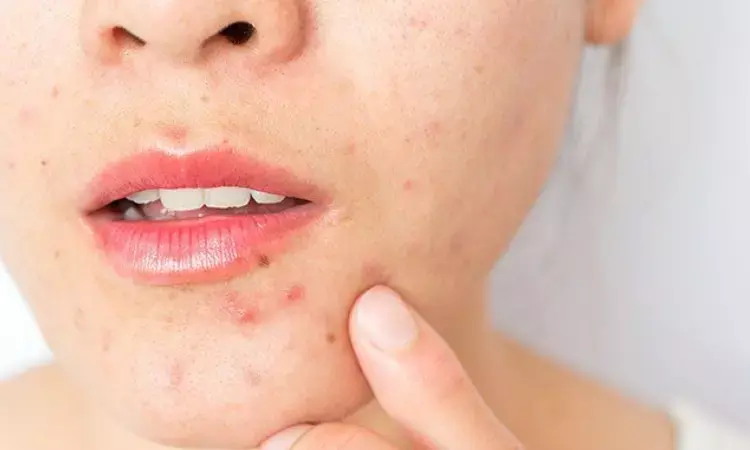- Home
- Medical news & Guidelines
- Anesthesiology
- Cardiology and CTVS
- Critical Care
- Dentistry
- Dermatology
- Diabetes and Endocrinology
- ENT
- Gastroenterology
- Medicine
- Nephrology
- Neurology
- Obstretics-Gynaecology
- Oncology
- Ophthalmology
- Orthopaedics
- Pediatrics-Neonatology
- Psychiatry
- Pulmonology
- Radiology
- Surgery
- Urology
- Laboratory Medicine
- Diet
- Nursing
- Paramedical
- Physiotherapy
- Health news
- Fact Check
- Bone Health Fact Check
- Brain Health Fact Check
- Cancer Related Fact Check
- Child Care Fact Check
- Dental and oral health fact check
- Diabetes and metabolic health fact check
- Diet and Nutrition Fact Check
- Eye and ENT Care Fact Check
- Fitness fact check
- Gut health fact check
- Heart health fact check
- Kidney health fact check
- Medical education fact check
- Men's health fact check
- Respiratory fact check
- Skin and hair care fact check
- Vaccine and Immunization fact check
- Women's health fact check
- AYUSH
- State News
- Andaman and Nicobar Islands
- Andhra Pradesh
- Arunachal Pradesh
- Assam
- Bihar
- Chandigarh
- Chattisgarh
- Dadra and Nagar Haveli
- Daman and Diu
- Delhi
- Goa
- Gujarat
- Haryana
- Himachal Pradesh
- Jammu & Kashmir
- Jharkhand
- Karnataka
- Kerala
- Ladakh
- Lakshadweep
- Madhya Pradesh
- Maharashtra
- Manipur
- Meghalaya
- Mizoram
- Nagaland
- Odisha
- Puducherry
- Punjab
- Rajasthan
- Sikkim
- Tamil Nadu
- Telangana
- Tripura
- Uttar Pradesh
- Uttrakhand
- West Bengal
- Medical Education
- Industry
Acne linked to development of insulin resistance: Study

USA: A meta-analysis in the Journal of the American Academy of Dermatology revealed that acne is strongly associated with the development of insulin resistance which should be considered while counseling patients. This information can aid in the early treatment of insulin resistance and can help in preventing diabetes and cardiovascular disease.
In westernized societies, acne is more common such suggests that environmental factors are a likely contributor to acne pathogenesis. Metabolic abnormalities may impact key factors in acne development, such as the proliferation of basal keratinocytes in the sebaceous-pilosebaceous unit and abnormal desquamation of follicular corneocytes.
Based on the above backdrop, Kurt A. Ashack, Dermatology Associates of West Michigan, Grand Rapids, Michigan, and colleagues hypothesize that acne patients would show higher levels of insulin resistance. They examined the relationship between insulin resistance and acne in this systematic review and meta-analysis as it may have important therapeutic and diagnostic implications, such as exploring insulin modifiers as an adjunct acne treatment and screening acne patients for metabolic syndrome.
For this purpose, the researchers systematically searched for studies published before March 17, 2021, that evaluated insulin resistance in acne patients. They included only those clinical studies that measured values for Homeostatic Model Assessment for Insulin Resistance (HOMA-IR), a validated laboratory measure of insulin resistance, in acne patients and control subjects.
Thirteen articles met inclusion criteria and were included in the analysis. The following data were extracted from each article: mean age of acne subjects, the number of acne subjects, acne severity, mean body mass index of acne subjects, other acne qualifiers (postadolescent acne or treatment nonresponders), control subjects, mean HOMA-IR value in both acne and control groups, and quality assessment score.
The study revealed the following findings:
· Acne patients had higher HOMA-IR values than controls (standardized mean difference = 0.60).
· Onset of acne in the postadolescent period, the average age of participants, sex of participants, average body mass index, publication year, or quality score were not significant modifying variables in our model.
· There was heterogeneity between studies, which was a limitation of the study.
· Although some asymmetry exists, the large effect size of study 13 appears to mitigate the asymmetry. However, due to the small number of studies with a large variation in effect sizes and standard errors, we do not have enough evidence that publication bias does not exist in this study.
The researchers, based on the study, suggest that dermatologists should be aware of this potential relationship (between acne and insulin resistance) and consider referring patients with acne to primary care for further evaluation.
"Early treatment of insulin resistance can prevent the development of diabetes and cardiovascular disease," they concluded.
Reference:
The research letter titled, "Acne and insulin resistance: A systematic review and meta-analysis," was published in the Journal of the American Academy of Dermatology.
DOI: https://doi.org/10.1016/j.jaad.2021.12.033
Dr Kamal Kant Kohli-MBBS, DTCD- a chest specialist with more than 30 years of practice and a flair for writing clinical articles, Dr Kamal Kant Kohli joined Medical Dialogues as a Chief Editor of Medical News. Besides writing articles, as an editor, he proofreads and verifies all the medical content published on Medical Dialogues including those coming from journals, studies,medical conferences,guidelines etc. Email: drkohli@medicaldialogues.in. Contact no. 011-43720751


